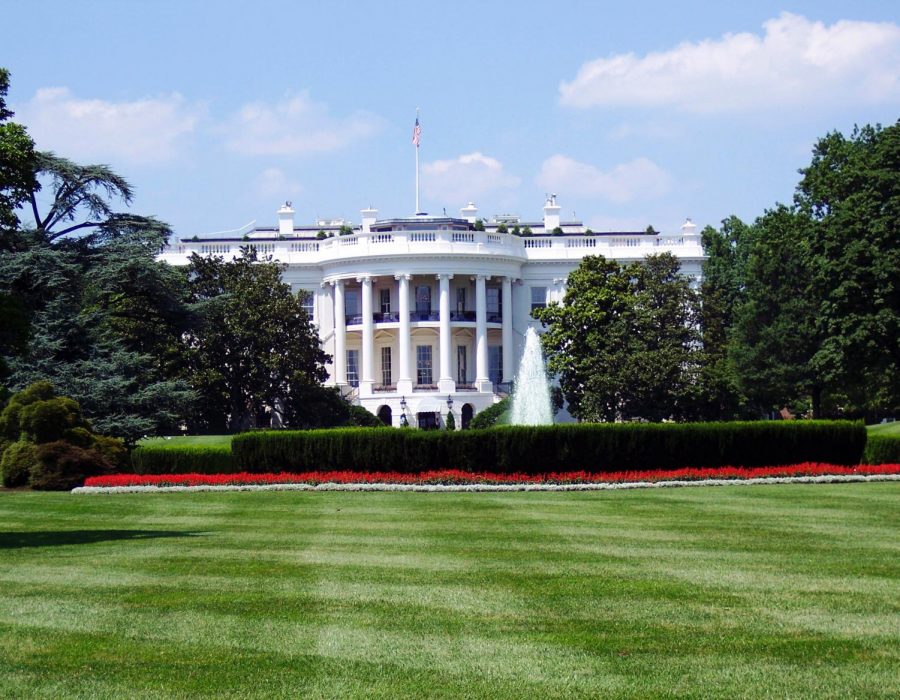Political polarization needs to be fixed
Opinion columnist Colin Horning discusses the polarization of political parties in the United States and how it will impact decision-making.
Feb 14, 2019
Nowadays, the political climate in America is incredibly polarized. It’s not hard to tell: People who identify as liberal are moving farther to the left and people who claim to be conservatives are moving farther to the right.
A 2017 study conducted by the Pew Research Center found that less than 32 percent of Americans hold a roughly equal amount of liberal and conservative views. This number was about 50 percent in 2004. In the year 2019, it’s likely that the ideological divide has continued, with the effects beginning to show in the last few years.
2016 saw the election of President Donald Trump, a president who is much more conservative than most typical Republican nominees for the presidency. However, the most recent midterm elections saw the Democrats gain 39 seats in the House of Representatives. This resulted in a large majority while at the same time taking a net loss of two seats in the Senate, which made both chambers of Congress firmly split between the two major parties (and political ideologies for that matter), all the while having a staunch right-wing president in the Oval Office. This essentially means that almost nothing will get done in the nation’s capital for the next two years unless there are miraculous bipartisan agreements from members on both sides.
As the nation continues in opposite directions in terms of political points of view, it’s likely that less and less legislation will get passed at the federal level. This is partly the purpose of having a three-branch system of government: should an issue arise that people of both sides agree on; a law will be passed for the betterment of the country. But most Americans would likely agree that they have certain issues in which they feel strongly about that have a small chance of actually being resolved with the current capacity in Washington. So how can we curtail this divide? Most of the current polarization can likely be traced back to the ease of information bubbles caused by living in the digital age. Before the rise of the Internet and the reliance of online sources for information, most American had just three network news channels and a few newspapers that they would rely on for their news. There was, of course, no way of curating your news to skew towards your political views: you read the paper in the morning and watched the nightly news. That was it.
Often times journalists at these outlets held themselves to a high standard of being as unbiased as possible in order to inform the American public and aide them in deciding for themselves. The surge of solely online mediums who do not charge a subscription saw a decrease in objective journalism and an increase in information bias (from both right-and left-wing outlets) and in the social media age, these news outlets began to sensationalize headlines in order to go viral, thus increasing traffic to their websites and an increase in ad revenue. It is understandable why this would occur, but it has essentially turned news into a business geared towards getting clicks, views and shares rather than truly objective journalism. The upturn in Internet news has definitely made information easier to access than ever before, but it has made information bubbles easier than ever before as well. This is likely a big reason why we are so divided as a country: people from the left, right and even the middle are increasingly closing themselves off from the opposing points of view while at the same time-consuming information that reaffirms their biases. The previously mentioned Pew Research Study claims that the American people are holding fewer views from their opposing party, again likely due to the rise of online news. Everyone has likely been guilty of this at some point or another; the trick to avoiding information bubbles is to consciously be aware that one is doing it. It’s important to keep yourself informed on all sides of an issue and to be reasonable and tolerant of someone else’s ideas when having a discussion with them, regardless of how much you might disagree.
Trying to understand why someone holds their views, rather than attempting to change them is also important. The increase in the ideological divide in America is only going to further unless we as a population make mindful attempts towards keeping ourselves reasonable and broad-minded of all ideas.


















